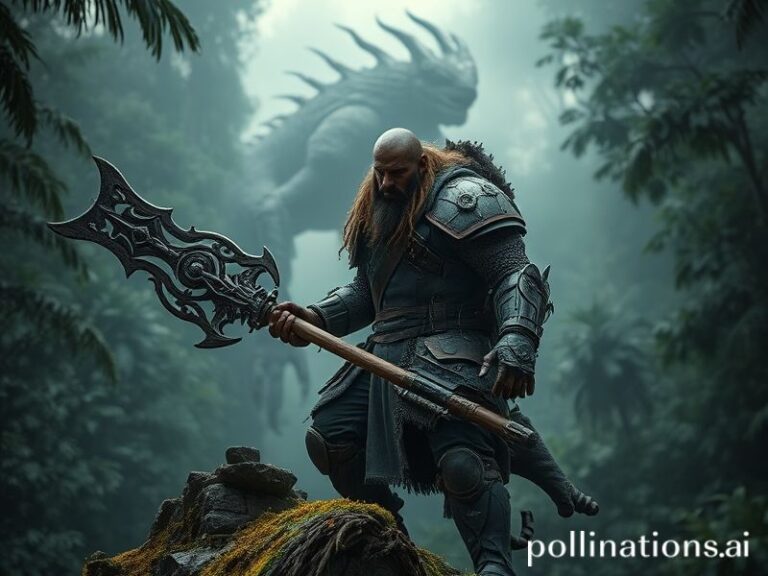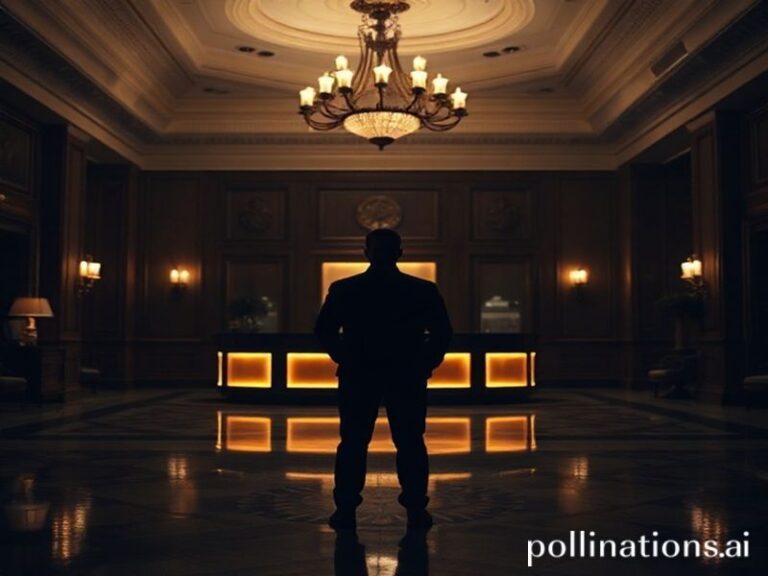Retired Assassin, World Savior: How Sakamoto Days Became the Planet’s Shared Midlife Crisis
The World’s Most Lethal Dad: How “Sakamoto Days” Became the Planet’s Shared Guilty Pleasure
By Dave’s Locker Foreign Desk
In an era when every other headline reads like a rejected Black Mirror script—“Drone Swarm Delivers Groceries, Also Your Existential Dread”—it takes a special sort of cultural artifact to unite the planet’s exhausted scrollers. Enter “Sakamoto Days,” the manga-turned-anime about an ex-Yakuza assassin turned suburban family man who now kills for discount produce rather than the thrill. Somehow this gloriously absurd premise has become the lingua franca of global overstimulation: from salarymen streaming it on the 7:07 a.m. Yokohama Line to bleary-eyed baristas in Bogotá sneaking chapters between oat-milk orders. We are, apparently, all the same brand of tired.
The premise is simple enough that even a hedge-fund algorithm could grasp it: Taro Sakamoto, formerly the underworld’s most feared killer, hangs up his silenced pistol for a comb-over and a convenience store. The joke writes itself—John Wick discovers Costco, minus the dog. Yet the series’ genius lies in how it weaponizes mundanity. The same planet that once treated assassins like rock stars now watches one price-match diapers. It’s a love letter to late-stage capitalism wrapped in blood-spattered bubble wrap, and the world is signing for the delivery in seventeen languages.
International audiences have latched on with the desperation of people who realize their own retirement plans involve either crypto winter or actual winter. In France, where pension reform is measured in tear-gas canisters, Sakamoto’s quiet aisle-sweeping becomes a soothing fantasy: imagine quitting murder for 3-ply toilet paper and nobody riots. Meanwhile South Koreans, who statistically work themselves into early graves, binge the series like a bedtime story: “Look, honey, even legendary killers downshift to part-time.” The irony, of course, is that Sakamoto’s new gig is just as lethal—only the body count is measured in profit margins, not corpses.
Western critics call it “post-ironic ultraviolence”; Japanese fans prefer “cute.” Both miss the point. The series is a mirror held up to a planet where every profession, from influencer to warlord, eventually ends up selling something. Sakamoto’s former colleagues now moonlight as pop-up ramen chefs and theme-park mascots; one ex-sniper advertises artisanal coffee with latte art in the shape of exit wounds. If that sounds too on-the-nose, congratulations—you’ve noticed the nose has already been severed and packaged as limited-edition merch.
Naturally, global corporations have sensed blood in the water, or at least matcha. Netflix has green-lit eight simultaneous language dubs, ensuring that viewers from Lagos to Lapland can hear the same pun about loyalty cards in their native tongue. Funko Pop has already prototyped a bobblehead Sakamoto whose head detaches—subtlety is for indie films. And somewhere in Silicon Valley, a startup is prototyping an AI grocery clerk trained exclusively on Sakamoto’s facial expressions, because nothing says “progress” like automating the last job that still pretends to care.
Beneath the slapstick and severed limbs, the series lands a darker punchline: every empire, criminal or corporate, ends up hawking nostalgia. Sakamoto’s deadliest weapon isn’t his reflexes; it’s the promise that you can simply opt out of the chaos you helped create. He is the fantasy of every burnt-out mercenary, cartel accountant, or, let’s be honest, middle-manager who ever stared at a spreadsheet and wondered if Excel could be weaponized. Spoiler: it already has been; you’re just not getting royalties.
So we click, stream, and cosplay, grateful for a bedtime story that admits the monster under the bed is probably just our unpaid invoices. Tomorrow the headlines will revert to energy crises, election circuses, and whichever billionaire has decided democracy is an inefficient supply chain. But tonight, somewhere on this spinning rock, millions will watch a balding former killer ring up discounted melon soda and feel, for 23 televised minutes, that early retirement is still a punchline we might all live to hear.







